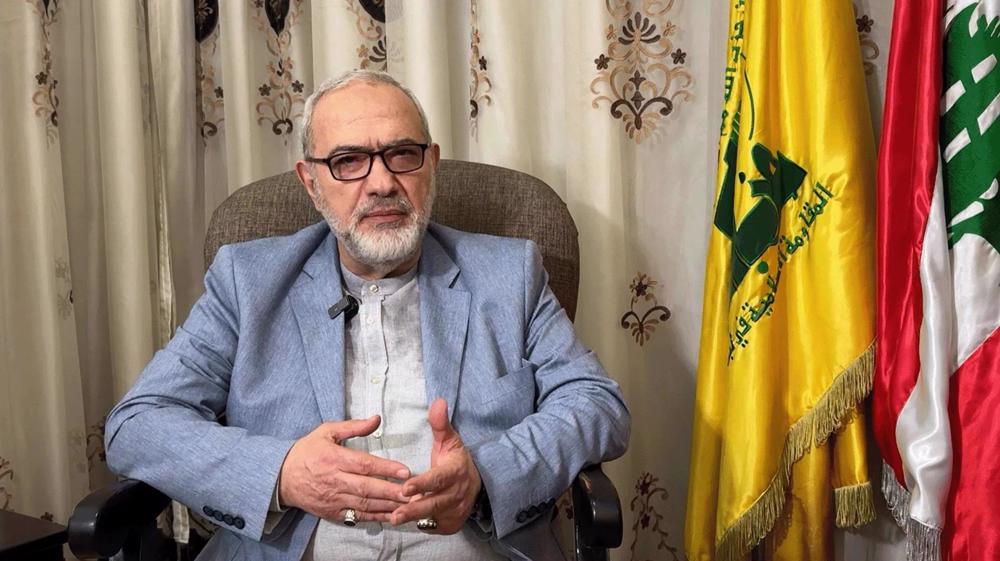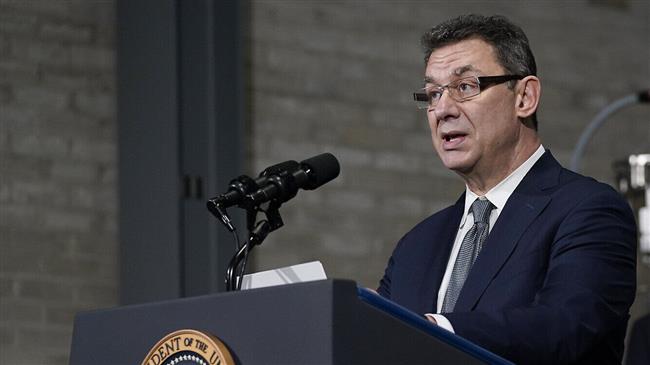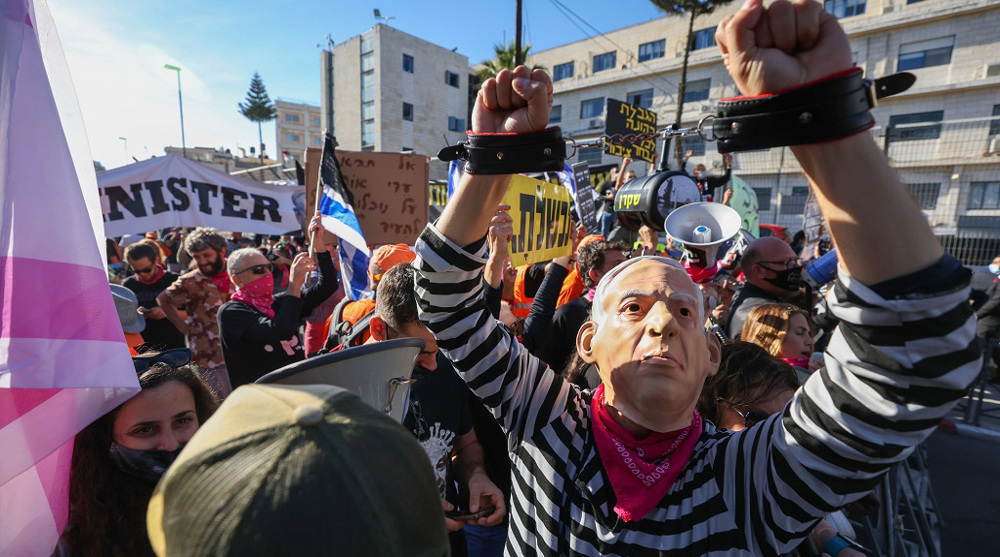Israelis head to polls again to vote on scandal-hit Netanyahu's political survival
People in the Israeli-occupied territories are heading to the polls for the fourth time in less than two years, with embattled Prime Minister Benjamin Netanyahu facing a tight battle for a parliamentary majority, which could help him undercut the corruption trial underway against him.
Polling stations opened at 7 a.m. (0500 GMT) and will close at 10 p.m. (2000 GMT). Exit polls will be broadcast at 10 p.m. Tuesday night on three television networks.
But the real results from the normal polling stations will only be available on Wednesday, and some 430,000 double ballots from the special polling stations, soldiers, emissaries and prisoners will arrive by Thursday or Friday. The final results must be out by March 31.
The results are too close to call, but opinion polls indicated an uptick for Netanyahu’s right-wing Likud party in the campaign’s final days, giving a prospective coalition of conservative and ultra-Orthodox parties around 60 seats in the 120-member Knesset (parliament).
Former finance minister and chairman of the opposition Yesh Atid centrist political party, Yair Lapid, has emerged as Netanyahu’s main challenger thanks to deep divisions in the Blue and White opposition party headed by Benny Gantz.
This is while both New Hope leader Gideon Sa’ar and Yamina head Naftali Bennett made commitments more than a month ago to not sit in a Lapid-led administration.
Opponents have accused Netanyahu of seeking new elections out of self-interest, in the hopes of securing enough support in parliament for possible legislation to quash the legal proceedings against him.
Netanyahu, 71, is accused of accepting improper gifts and seeking to trade favors with media moguls in exchange for positive coverage. He has denied wrongdoing.
To shift attention away from his graft charges, the premier has been trying in recent months to publicize the vaccination campaign against COVID-19 in the hope of securing more votes.
If Netanyahu’s bloc narrowly fails to win a majority, Israel is likely to head for a dreaded fifth round of elections.
Meanwhile, Netanyahu has so far failed to secure enough pledges of allegiance from smaller parties, which would be essential to form a majority coalition cabinet.
The premier and his former election rival Gantz, who is now the Israeli minister of military affairs, established a unity cabinet in May last year in the wake of three inconclusive elections.
The fractured ruling coalition, however, collapsed last December after it failed to pass a budget and Israel’s parliament was dissolved.
Gantz’s Blue and White party is forecast to garner barely enough votes on Tuesday to get into parliament, after he angered many of his supporters by reneging on a promise not to serve under a “crime minister.”
Haarerz: Entirety of Israel’s voter data leaked online
Meanwhile, Haaretz daily newspaper reported on Monday that the personal information of all eligible Israeli voters had been leaked by anonymous hackers one day before the legislative election.
According to the report, the leaked database contains names, ID numbers and other personal data on over 6 million Israeli voters, with the hackers implying that it was the continued use of the campaign-management application Elector by political parties that motivated them to leak the information.
Haaretz wrote that the hacker group, under the name “Israeli Autumn,” had said Elector is a “spy tool” that “is actively supported by those who are supposed to protect the citizens,” blaming the Tel Aviv regime for “fail[ing] to fulfill its duty for corrupt political reasons.”
Iranian commander dismisses US military buildup in West Asia as ‘theatrical gesture’
US special envoy says Trump ‘curious’ as to why Iran hasn’t ‘capitulated’ yet
Lindsey Graham urges Trump to ignore aides opposing war on Iran
Far-right, anti-Islam protest sparks counter-protests in Manchester
Press TV's news headlines
Sudan’s mining sector suffers $7 billion loss amid ongoing civil war
Ansarullah slams Israel’s massacre in east Lebanon, urges unified Arab action
Iran resolved to uphold nation’s nuclear rights via diplomacy: FM Araghchi

















 This makes it easy to access the Press TV website
This makes it easy to access the Press TV website